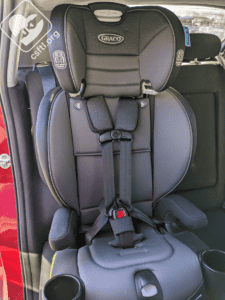Wine-tasting driver with heart condition loses claim dispute

A motorist who crashed and flipped his vehicle after hitting a parked car has lost his claims dispute as he was well above the legal Blood Alcohol Content (BAC) limit at the time of the accident.
The complainant was driving home from a wine tasting event around 8pm on October 9 last year when he hit a stationary vehicle. The insured car rolled onto its side and roof and was later assessed as a total loss.
The driver held a comprehensive motor vehicle policy with RACQ and lodged a claim the next day.
RACQ denied the claim, saying the motorist had been under the influence of alcohol at the time of the crash, which the policy held exclusions for under the “driver responsibilities” section. The insurer relied on information from crash respondents and a forensic medical report for its decision.
Ambulance records shown to the Australian Financial Complaints Authority (AFCA) panel reported that officers observed the complainant “to be intoxicated” at the crash scene, with the man saying he had no recollection of the accident. The report also noted that the driver denied feeling pain or being unwell before the accident.
The complainant was charged with “driving a vehicle whilst over the middle alcohol limit but not over the high alcohol limit” after a blood sample showed a BAC level equivalent to 0.104%. The man admitted to drinking six small glasses of red and white wine at the event.
The claimant challenged the insurer’s denial, saying the accident occurred due to his heart stopping and told the panel he was subsequently diagnosed with a heart condition after the crash.
He provided information that showed he was taken to a hospital emergency room around 5am on the day after the crash for chest pain. He said he underwent further medical treatment and testing and had a pacemaker fitted to prevent future “blackout” events.
A letter from the complainant’s doctor from November 9 said that the man’s blackout “was most likely” secondary to his heart stopping. A letter from the driver’s GP also revealed that the man had “a further episode of loss of consciousness” after climbing a set of stairs.
An insurer-appointed forensic medical expert, referred to as Professor O, said the motorist’s alcohol consumption was a “contributing factor” to the crash.
Prof O reported that the driver’s alcohol limit raised the overall collision risk by “up to 20 times that of a sober driver” and said the risk of a single-vehicle fatal collision was increased “30 times greater”.
The report also noted that the claimant “may have had an episode of syncope due to cardiac arrhythmia brought on by excessive consumption of alcohol”.
The AFCA panel said it was satisfied the insurer’s denial was based on valid circumstances, saying the accident “was caused by or arose in connection with the complainant’s alcohol consumption”.
It refuted allegations from the claimant that Prof O’s opinion was biased because he was being paid by RACQ, saying the professor was an “independent expert and entitled to the pay of his work”.
The man also said his doctor was more qualified to assess his heart condition accurately because he had been a practising heart specialist while the professor was “an academic”.
The panel said Prof O had 44 years of clinical experience and was a practising addiction medicine specialist.
It noted that the complainant’s doctor did not mention whether his alcohol consumption contributed to the accident and provided no response to the professor’s connection between his heart episode and alcohol consumption.
AFCA ordered RACQ to inform the complainant of his vehicle’s location after he said he was unaware of where the insurer took it.
Click here for the ruling.






